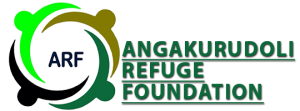Depending upon your drug of choice, the symptoms that suggest the presence of an addiction that requires treatment will vary. Different classes of drugs have different telltale signs that signify usage.
In general, however, there are a number of signs that drug abuse or alcohol abuse is a serious problem. If you recognize some or all of the following things happening to someone you care about, or happening in your own life, drug abuse may be an issue that needs to be addressed in treatment:
- Isolating from family and friends who don’t use drugs
- Spending time with new friends or friends who get high or drink
- Never having money or often asking to borrow money, even for small items
- Showing up late to work/school or not showing up at all
- Losing a job
- Doing little to find a job if out of work
- Paying less attention to basic hygiene
- Changes in sleeping habits
- Extremely private about possessions, including their bag, room, or car
- Lying about using or drinking
- Sneaking away to get high or drunk
You may find hidden bottles of alcohol or drug paraphernalia among your loved one’s belongings. Personality changes often occur with substance abuse and addiction. You or your loved one may be more irritable or agitated, and even blow off commitments or family events.
Drug Abuse in Teens and Young Adults
The earlier in one’s life that drug abuse begins, the more likely an individual will be to become addicted. Substance use in teens and young adults can become part of a pattern of unsafe behaviors, including unsafe sex and driving under the influence. Due to availability, teens and young adults may be more likely to abuse dangerous “club drugs” which, as part of the general picture of alcohol and drugs being abused by this demographic, can lead to serious problems including:
- Addiction
- Poor judgment.
- Impaired memory.
- Injury due to intoxication.
- Lifelong legal problems.
- Development of mental health issues.
- Serious, irreversible physical health problems, such as HIV, Hepatitis C, or damage to major organs.
- Overdose or death.


